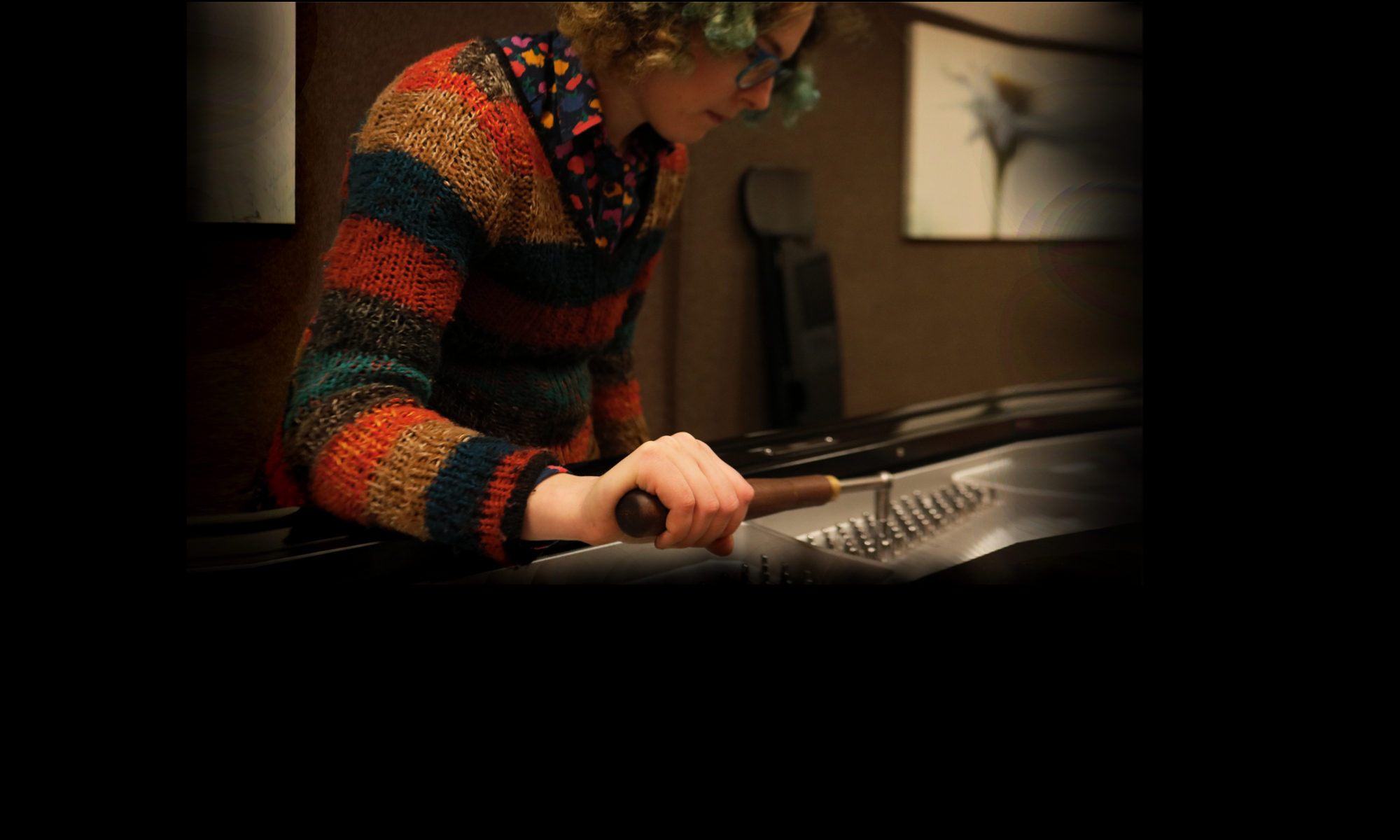To enable musicians around the world to play in tune with each other, there is an international standard concert pitch: 440* HZ. This is the standard pitch of “Concert A” – on a piano, the A above Middle C.
If a piano is tuned regularly and kept in good condition, it should stay at concert pitch with a minimum of effort, and the main job of the tuner will be to keep the piano in tune with itself.
However, if a piano has not been tuned for years, is in poor condition, or has been kept in an overly damp or dry environment, it can fall below concert pitch – sometimes by as much as a semitone!
Because a piano has so many strings, making a significant change to its pitch drastically shifts the tension on the instrument. As a result, if the pitch of the piano is being raised by more than a very small amount (about 2 hz), a single “pass” over the tuning will not be sufficient to bring it into tune, as by the time the tuner has finished, the tension will have shifted and the piano will once more be out of tune.
For this reason, when tuners wish to bring a piano that is very flat to concert pitch, they must perform a pitch-raise – two or sometimes more tunings to raise the piano up to pitch.
Sounds simple, right? Why wouldn’t you want your tuner to do this? Well, there are a couple of factors. Firstly, a pitch-raise costs more, as it takes more of the tuner’s time. Secondly, if the piano is very old, or has any rust on the strings, raising the pitch can risk breaking strings. This incurs extra cost as these strings then need to be replaced.
I would always recommend bringing your piano to concert pitch if possible and practical. Sometimes, however, it is not. Here are some reasons to consider bringing your piano to concert pitch:
- More and more people are turning to online piano lessons during the coronavirus pandemic. It is likely (hopefully!) that your piano teacher’s piano will be at concert pitch; if yours isn’t, and you are trying to play along, you and your teacher will be out of tune with each other.
- Likewise, if you are trying to learn from videos on YouTube or similar, you will experience the same problem.
- If you play with other musicians and your piano is very flat, a violinist or guitarist might not enjoy having to tune their instrument lower than usual.
- Some instruments, such as clarinets and saxophones, are largely untuneable (while many wind instruments can be tuned slightly, if a piano is significantly flat they won’t be able to compensate enough), so it will be impossible to play with them in the right key!
- Even if you don’t have lessons, learn from videos or play with other instruments, if you (or anyone who plays your piano) are a serious musician and do any sort of recording, you will want your instrument to be at concert pitch – it will make things harder in the long run if it isn’t.
- If anyone who plays your piano is lucky enough to have perfect pitch, having an instrument below concert pitch will be extremely annoying!
And some reasons to consider leaving it flat:
- A good number of pianos in the U.K. are old Victorian “overdamper” or “birdcage” pianos. These instruments are typically more than 100 years old and suffer from issues such as rusting strings and loose pins. Bringing them to pitch risks breaking strings (which will then cost to replace; upto £45 per string in the case of bass strings. If five break, your tuning starts to look quite costly!)
- A piano that has been drastically shifted in pitch may be more prone to going out of tune for the first few tunings, and therefore may require more frequent tunings even after it has been pitch-raised. (However, this can also be the case for any piano that hasn’t been tuned in many years, pitch-raise or no.)
- As well as being potentially more risky on older pianos, a pitch-raise is more expensive; usually slightly less than double the cost of a standard tuning. While this is still excellent value for an instrument that usually only needs to be tuned every 6-12 months, if you are just playing the piano occasionally for fun, this might be more than you’re willing to invest.
So, in conclusion: if you plan to play with others or have online piano lessons, or there is someone in your household who is a serious musician, you should definitely consider pitch-raising your piano. If you’re playing the piano only for yourself and for fun, don’t intend to use it much, and your piano is very old or has rusty strings, you should consider leaving it flat.
A qualified piano tuner can assess your piano prior to tuning and recommend the best course of action. I will always discuss options with you to ascertain whether or not your piano should be pitch-raised.
Contact me today to book in a tuning!
*While this is the most standard modern concert pitch, some European orchestras play at 443, and Baroque pitch is widely standardized at 415.

